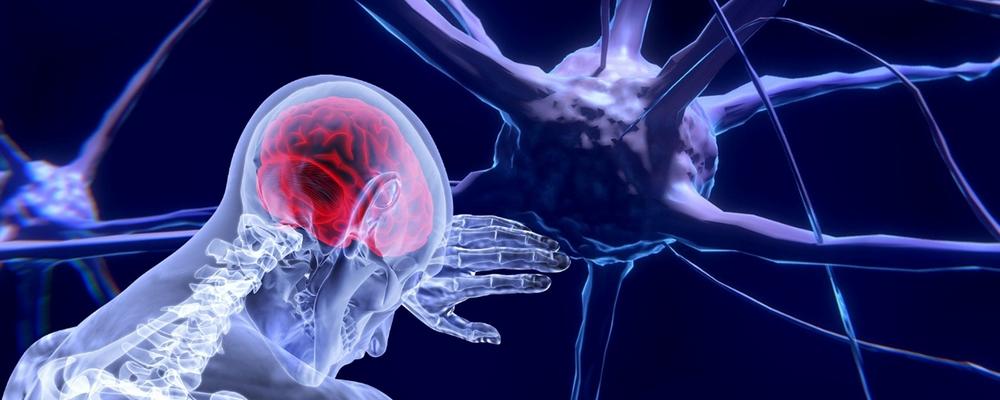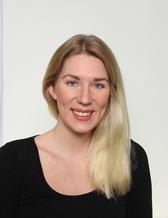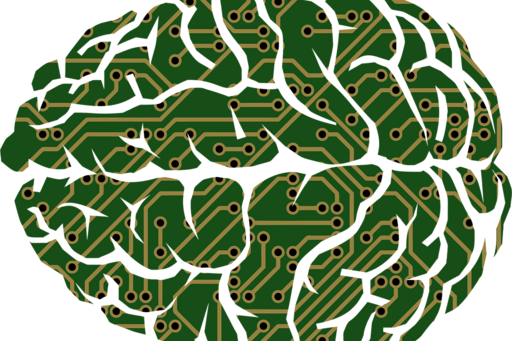
- Home
- Research
- Find research
- Investigating the neurophysiology of autism
Investigating the neurophysiology of autism
Sara Landberg, PhD student, tells us all about her research at the GNC.

What is your professional background? I understand you started out in the UK?
Yes, I started my studies with a four-year master's degree in psychology at the University of Edinburgh in Scotland. It was a fantastically fun education and a deep dive into psychology with a lot of focus on research. One of the years I did an exchange year in the French Alps at a university in Grenoble. Then I decided to deepen my knowledge in neuropsychiatry and went on to a master's degree in just that, at King's College London in England. Here I assisted in a project about autism through my thesis and also got to attend many clinical neuropsychiatric assessments. My knowledge and interest in neuropsychiatry grew in this way. I became more and more curious about the neurophysiology behind various conditions and my medical interest grew. After graduation, I therefore decided to apply for the medical program and I moved to Gothenburg to study to be a doctor.

How did you end up at the GNC?
When I came to Gothenburg, I contacted Christopher Gillberg to ask for a meeting. Through my studies in neuropsychiatry, I had understood that the GNC conducted world-class neuropsychiatric research and when I was now in Gothenburg, it felt obvious that I would try to join the centre. I got a job as a research associate professor, a role related to the medical program. Three years later, this role became a doctoral position and that's the way it went.
We will use the drug bumetanide which can restore an imbalance between the neurotransmitters in the brain.
What are your research interests?
My research interests are quite broad, I would say. I have been part of many different teams at the GNC and participated in several different projects during my years here. Above all, my focus is on autism and ADHD. I am interested in increasing the understanding of these conditions, not least exploring the underlying neurophysiology but also improving the understanding in society. For example, both autism and ADHD are diagnoses that are more often diagnosed in boys than girls and we now know that one of the reasons for this is an underdiagnosis of girls, probably due to a different symptom picture. This is something that I think is incredibly important to investigate further and shed light on.
Sara, you have recently been accepted as a PhD student at the GNC. What is your project about?
My doctoral project is about investigating the neurophysiology of autism. Although autism is an incredibly common condition that can cause enormous suffering, there is a lack of knowledge about what actually causes classic autism symptoms. We will test an explanatory model that has proven very promising in previous studies. In the brain, there are neurotransmitters that activate and neurotransmitters that inhibit. In between there is a balance. It seems that this balance is affected in autism, so that the brain has more activating than inhibiting neurotransmitters. This would mean that those with autism have a brain that is more easily activated by various things, such as eye contact or different sensory impressions. Such increased activation can be very difficult, which explains why those with autism often avoid, for example, eye contact. Within my project, we will build on this theory. We will use the drug bumetanide which can restore an imbalance between the neurotransmitters in the brain. Small studies have already shown that bumetanide can have a positive effect on autism symptoms.

Why have you chosen this particular research subject for your PhD studies?
Investigating the neurophysiology behind autism feels incredibly important. At present, there is much that is missing in the knowledge about the condition. Increasing understanding could improve the treatment of these individuals but also diagnosis and eventually the development of treatment for severe symptoms. At present, there is no treatment for autism symptoms, despite the fact that it is so common and that it can be so limiting.

What stage are you currently at in your PhD studies? What are you working on at this very moment?
We are currently in the preparatory phase of our project. We will use a lot of different objective tests and studies to evaluate the effect of bumetanide. All this must be prepared and tested before we can get started. We work with a team in Uddevalla and will start everything there as well. In addition, we have chosen to develop a method for testing some of our surveys online as well. Right now I am working a lot with the development of our methods, but pretty soon we should be ready to start recruitment.
What challenges do you think you will face?
These are very special times and the ongoing pandemic is causing all sorts of problems. I can imagine that delays in connection with the pandemic will be the biggest challenge. We will coordinate a large study with many people involved, which needs a lot of flexibility with or without a pandemic. Safety must come first.
What aspect of your PhD studies do you enjoy the most? What is the most difficult?
There is a lot that I like about my doctoral studies. There are so many opportunities in research, many unsolved mysteries. In addition, it feels rewarding to be able to contribute to knowledge in important areas. Perhaps the most difficult is all the bureaucracy and all the applications that have to be written. For example, ethics applications and applications for funding. It is of course necessary but a bit boring work.
In my free time I am often active and preferably outdoors. I have a Finnish Lapphund, Atlas, who makes sure I do not sit still for too long. With all the snow we have received this winter, there has been some cross-country skiing and this summer I look forward to swimrun, a fun sport where you alternate trail running with swimming. I also sew clothes sometimes and bake a lot, everything from sourdough bread to pralines.